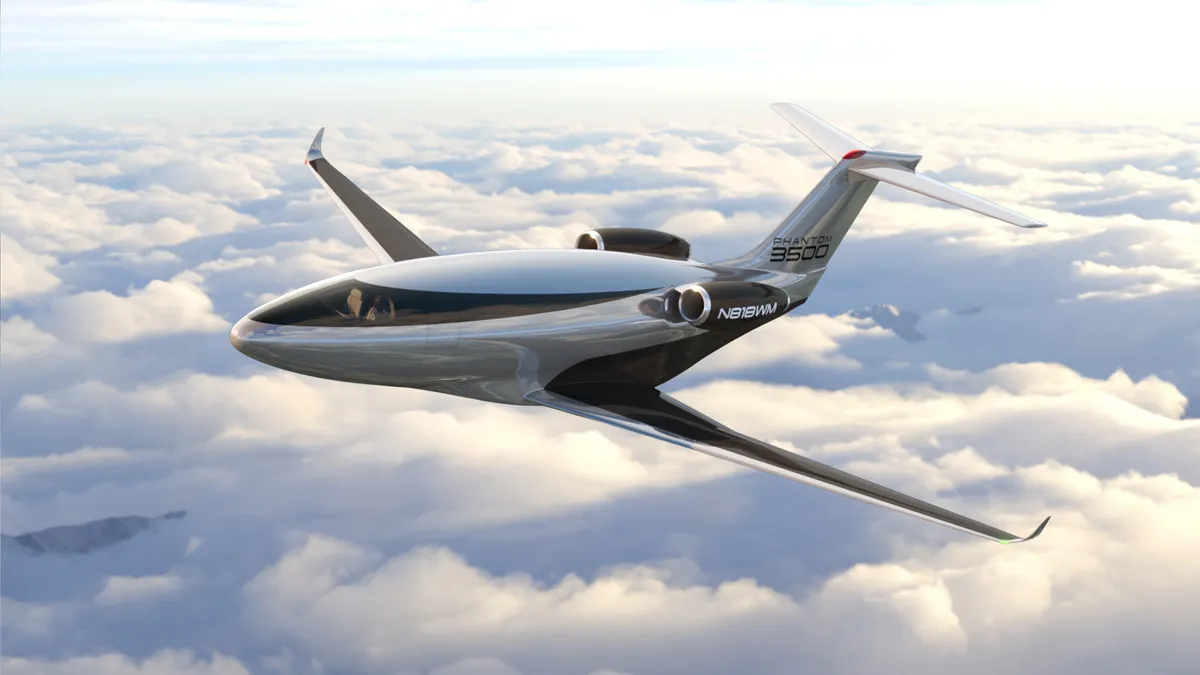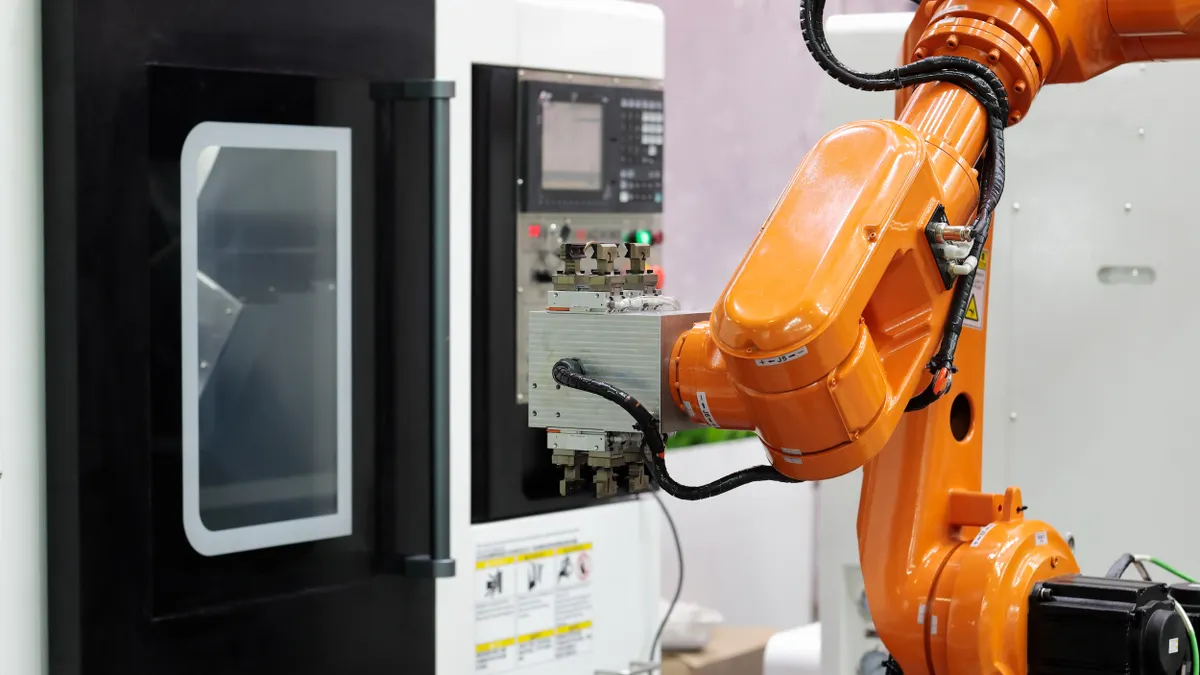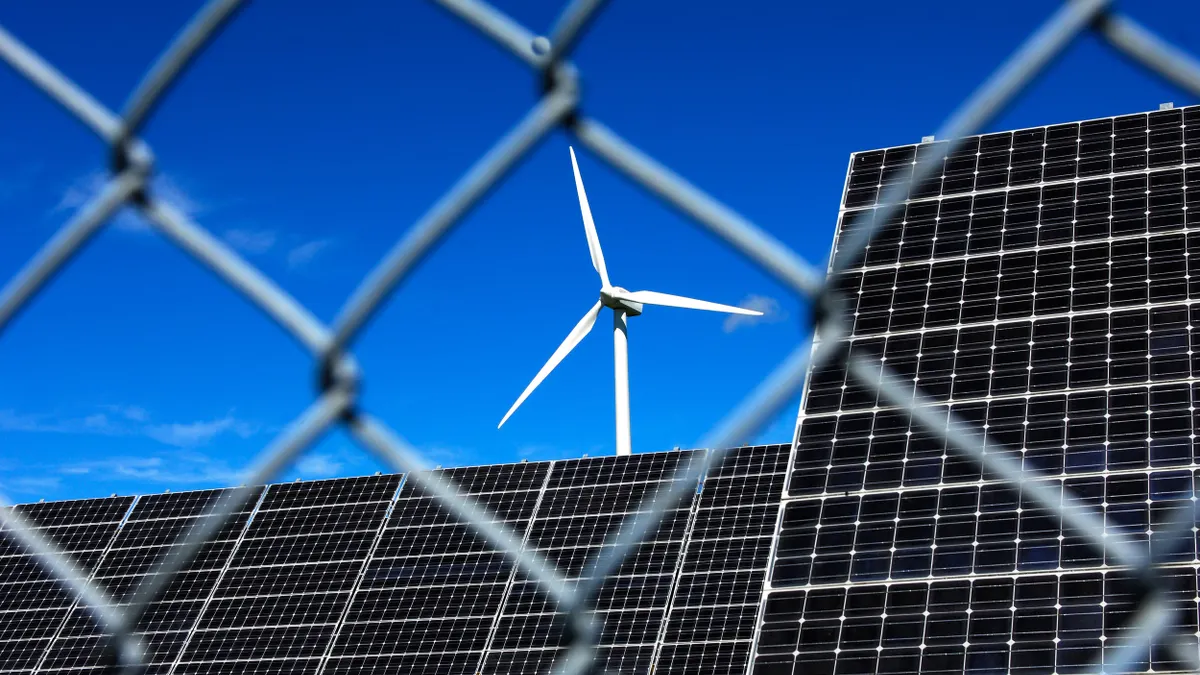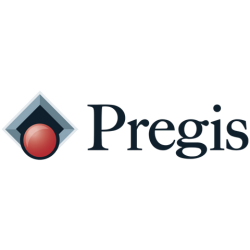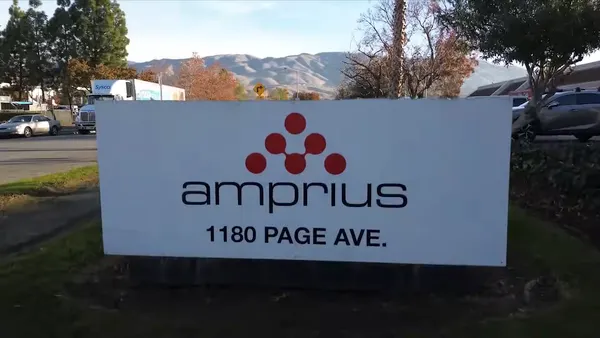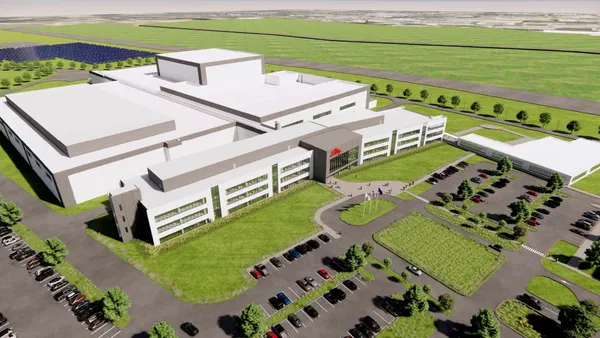Dive Brief:
- Otto Aviation is investing more than $430 million to establish an advanced manufacturing and production facility at Cecil Airport in Jacksonville, Florida, Gov. Ron DeSantis announced Monday at the 55th International Paris Air Show.
- The project entails upgrading an existing hangar to establish initial operations, building an 850,000-square-foot factory and creating more than 389 jobs with an average salary of $90,388, according to a Florida Commerce press release.
- The new facility will also serve as the primary final assembly site for Otto Aviation’s fuel-efficient Phantom 3500 aircraft, with production of its flight test vehicles slated to begin in 2026, according to the aerospace startup’s press release.
Dive Insight:
Otto Aviation aims to achieve net-zero carbon emissions with the Phantom 3500, set to enter service around 2030, according to the company’s press release on Tuesday.
The jet’s release date will be two decades ahead of the aviation industry’s goal to reach net-zero carbon emissions by 2050, which the International Civil Aviation Organization adopted in 2022. The United Nations agency embraced the target in support of the Paris Agreement's goal to limit the global average temperature increase to well below 2 degrees Celsius, or 35.6 degrees Fahrenheit.
Otto’s plane has an artificial intelligence-supported clean sheet design and high-speed airflow construction that makes the Phantom 3500 lightweight and burns 60% less fuel than similar-sized jets, according to the press release. The design enables the plane to travel farther on less fuel and reduces emissions by 90% when combined with sustainable aviation fuel.
“This new facility will become more than a manufacturing site — it’s the launchpad for the future of sustainable aviation,” CEO Paul Touw said in a June 16 statement.
Otto Aviation’s new facility will occupy 80 to 100 acres of land at Cecil Airport, expanding the company’s ability to service the commercial and defense markets while giving it room for potential growth.
The company also plans to move its headquarters from Fort Worth, Texas, to Jacksonville, according to the press release.
Jacksonville’s incentives were a “material factor” in choosing the new plant’s location, according to city council documents. The Jacksonville Aviation Authority approved a $34.9 million incentive package, and the city of Jacksonville approved an up to $20 million tax grant to support the startup’s investment.
Additionally, Florida state officials approved over $430 million in corporate income tax credits and performance incentive grants, the company said in the release.
“Jacksonville stood out as a city that shares our long-term vision: pushing boundaries in aerospace innovation while creating high-quality jobs and meaningful impact,” Touw said in a statement.
Florida is aiming to become “The Aerospace State,” according to a Florida Commerce press release on Tuesday. Last month, DeSantis announced that Boeing supplier Williams International is investing more than $1 billion to establish a gas-powered turbine engine manufacturing site in Okaloosa County.
The Florida governor also signed legislation earlier this week to draw more aerospace companies, according to the state’s Commerce Department. One new law will establish a plan to attract the advanced air mobility sector and increase spending on the state’s spaceports to support industry growth.
The other new law will support startups as well as boost research and financial investment in aerospace and aviation innovation. The legislation will also create the International Aerospace Innovation Fund to support commercialization efforts, research and development projects and expand workforce initiatives in a bid to expedite new technologies and processes.


